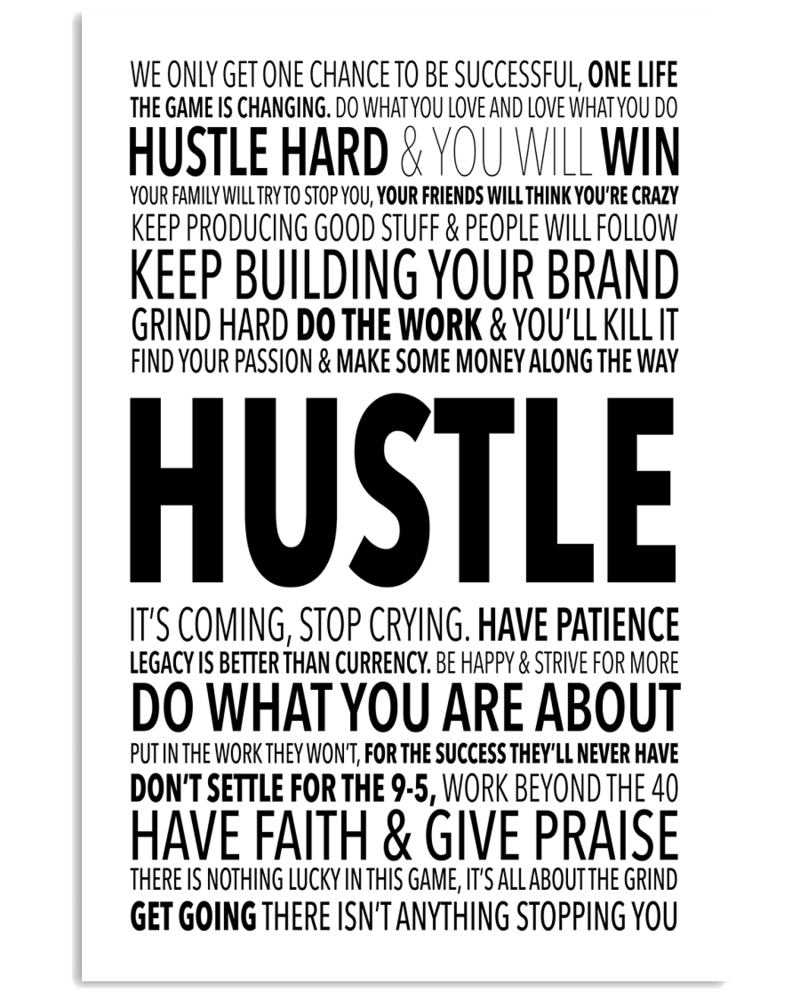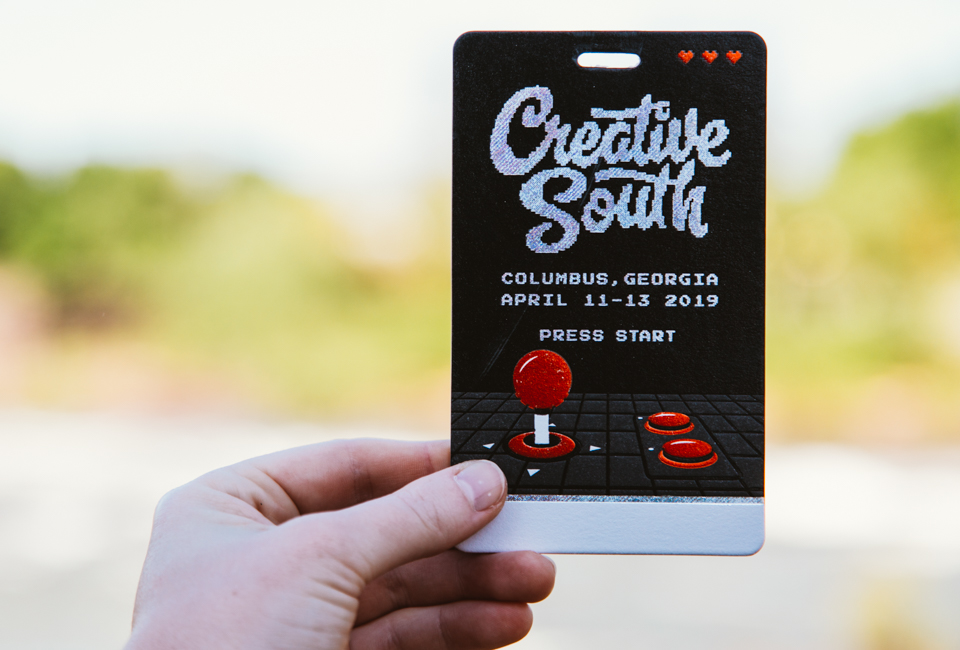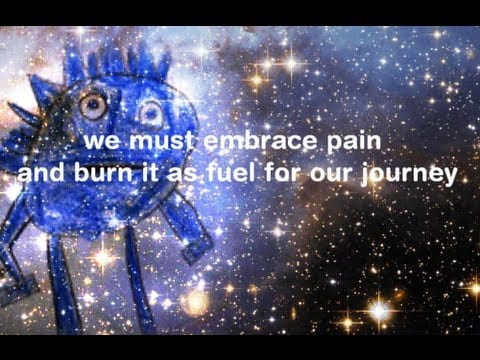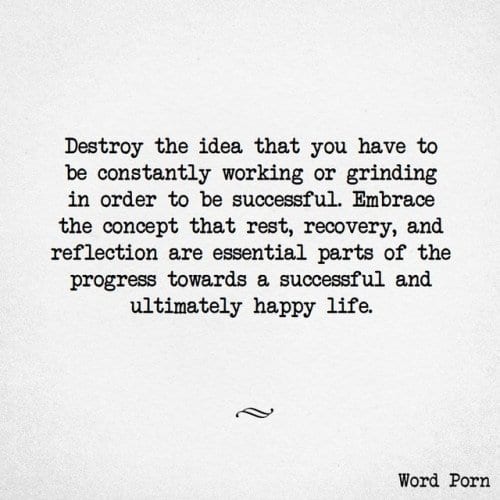For Stress Awareness Month Copywriter Max Dempster reflects on his recent time at the Creative South conference in Georgia, and all the hustling and bustling that trip entailed.
Let’s make one thing clear: I hate the word hustle. To me, it’s the cute word you throw around with friends and family when you’re being underpaid at a start-up agency while also working another full time job (and some freelance) just to make ends meet. It’s the romantic word I’ve seen used by young, talented people to hand-wave away the ulcers they were getting, the sleep they weren’t getting, and the fair compensation they should have been getting.
For the unfamiliar, the idea of hustle culture is a simple one, and not inherently sinister: work hard, very hard, no matter your means or situation, until you make it big.
This is in line with the word’s etymology. Hustle’s precursors in the 17th century popped up in relation to making money through games of chance, and over time naturally became associated with getting cash in a quick, if illegal, manner. It went on to describe the work ethic, street savvy, and sometimes-willingness to break the law that certain people needed to transcend the means that they were born into.
When hustling came to be associated with cultural archetypes like mobsters, gangsters, and gamblers who had all become successful, it makes sense that shortly thereafter the word and the work ethic behind it would start to be glamorized, to become cool.
And it does sound cool, doesn’t it? The word has a sexy air about it. It’s motivational. It implies swagger. It suggests a certain athleticism of mind and body. There’s restlessness in there, too, an individualism and refusal to be anchored to a place or identity, a class or mold.
With how underappreciated and underpaid creatives are in our country (go look at the talented people slaving away on Fiverr) it makes sense that hustling would deeply resonate with young, starving artists freelancing or trying to break their way into advertising.
It gives hope. It’s an entrepreneurial, distinctly American spirit at its core. I’d even go as far as saying that “hustle” is a big part of how young people today frame and talk about the American Dream.
Unfortunately, as we’ve learned in the past few decades, our country doesn’t have the healthiest relationship with work/life balance. Even now, our stress and depression is through the roof, and most people feel neither inclined nor equipped to talk about it. When you look at any social post relating to hustle, you’ll see that the hustler’s vocabulary isn’t exactly encouraging us to think about our stress or our health.

Yes it actually says “YOUR FAMILY WILL TRY TO STOP YOU.” Seems healthy.
Hustle has good intentions, and I am all about working hard and paying your dues, but as a societal mindset it’s starting to go septic, promoting poor health attitudes that can devastate a creative mind. It has become a glorification of being a workaholic, and serves as widely accepted justification for being taken advantage of for far less than you are worth (read: getting hustled).
Creative industries need to have a conversation about this, which is why I was pleasantly surprised to attend Creative South 2019 with my coworkers, and discover that important names in design are finally pushing back on “The Hustle.”
Look, I Paint Pictures With Words
Creative South isn’t something that I would normally attend. It’s a designer’s conference, with traditions like “Ink Wars,” a one hour canvas illustration contest between artists, and key note speakers like Jessica Hische, a renowned letterer and type designer. It had outfits like Orlando-based Mama’s Sauce running screen-printing workshops, and enough beautifully illustrated designer swag to fully decorate a home.
It was held in the Springer Opera House, where every room brought new color palettes and endlessly Instagrammable patterns, enough to fill three months of your grid with Stories to spare.
Everything was curated. Everyone was dressed very well and very particularly. The conference pass itself was gorgeous and letter pressed.

I mean look at this thing.
What I’m saying is, that as a writer whose visual arts acumen began and ended in high school with drawings of stick figures committing lewd acts, I couldn’t imagine anything at Creative South would apply to me.
But hey, one of our Art Directors had dropped out, so I had a free ticket. Plus, it was time out of the office to bond with my coworkers. I’d even planned to write a silly blog about being a writer at a design conference.
Use Your PAIN As FUEL
The first day was all workshops, and while I was feeling froggy, I did not jump at the opportunity to burn hundreds of dollars and explore how fundamentally flawed my handwriting is.
Day two brought with it the main lineup of speakers. The only one I’d heard of was Hische, who designed the cover of a very expensive copy of Moby Dick I once purchased and then tragically destroyed with coffee. She has also designed a million billion beautiful things you probably love.
Presentations were focused on creative experience and struggle, as viewed through the lens of each speaker’s life story and career. And some of these speakers had remarkable stories and careers. They were creative juggernauts who, through incredible talent and sleepless grit, had hustled out some small place for themselves in the pantheon of great designers.
While the word hustle was not explicitly used much, the mindset was present through most of the presentations.
The two talks that that stood out to me were from Illustrator/Designer Rocky Roark and from Designer Taylor Cashdan.
Roark’s talk was centered on adversity he had suffered throughout his life. In what was surely a difficult move, he opened up publicly about traumatic abuse he suffered at the hands of peers and adults in his childhood. I admired the bravery that took, but the rest of the talk had a lot of red hustle flags.
Talking points included not going to therapy, his wife “wondering if he’ll ever stop working,” stress meltdowns in front of said wife, little to no time off, pillow punching, and more. While Roark never endorsed avoiding therapy—he said he should have gone—many of the stories he told painted a picture of someone who never stops working, who bottles up stress and emotions until it either builds up some new success or breaks him down. Remember that “stop crying, keep working” poster from earlier?
I understand that he was sharing his truth without malicious intent, but I believe that when you have slides that talk in big bold letters about “using pain to fuel your work,” you’re perpetuating a culture of emotional deference and productivity exaltation that is actively harmful to creatives of all ages. Even without using the word, you’re playing into hustle culture while listing all the ways that it is hurting you and those around you.

This Sonic The Hedgehog meme wasn’t the slide, but it’s basically the slide.
So, props to Roark for his bravery and openness. I am not diminishing his struggles, but his talk contained much of what I think is wrong with creative hustle culture.
Work So Hard You Die
Cashdan, who was conscripted last second when a scheduled speaker dropped out, gave a talk as a recovered workaholic and stress addict. Cashdan was fully immersed in hustling. He, like a true hustler, or some sort of #fitspo influencer, checked all the boxes:
✓DON’T SLEEP
✓ALWAYS WORK
✓WORK HARDER
✓PERSEVERE
✓STAY FOCUSED
✓SAY NO TO SAYING NO
✓INCREASE THE HARDNESS OF YOUR WORK AGAIN
✓NEVER STOP NOT STOPPING
It brought him some success, but shortly thereafter it also brought him Arterial Fibrillation (AFib)—an irregular and rapid heart rate that can be all sorts of fatal. He played a recording of his bad heartbeat for us to hear, after teaching us how to check our own.
When his AFib hit, he went to the ER. He needed cardioversion (electrical shock) multiple times on multiple occasions just to get his heart on the correct rhythm. He almost died.
This prompted a reexamination of his relationship with work, since he had almost hustled himself off this mortal coil.
He learned to start sleeping. To start saying no when he was overloaded. He learned breathing exercises, meditation, therapy.
He was advocating for things that flew in the face of hustle. Things like self care, capping work at 40 hours, letting your friends and family talk you down from overworking.
He wrapped up with a powerful quote:

This is also not the slide. Cashdan’s was prettier.
Tough Talk
I hustled to get where I am and I liked how it felt. I’ve worked the too-many-hour weeks, spent years helping run an advertising nonprofit in my spare time. I still hustle. I come to work early, I sometimes leave late. Life and projects often necessitate extremes of productivity and availability, and in most cases I am happy to oblige. Hustling is a part of achieving dreams and getting ahead. But in the past I, like Cashdan and so many others, have taken it too far.
In my former life (my mid twenties), I was such a workaholic hustler that I had both ulcers and shingles, so Cashdan’s talk was the most resonant of my whole Creative South experience. He wasn’t the only one to speak on the importance of self-care. The endorsement of mental health, physical health, and stress mitigation was echoed by quite a few of the speakers, like headliners Jessica Hisch and Chris Do.
To be clear: working hard isn’t a problem. We start to have a problem when the 80 hour weeks become everyday, when sleep and health and contentment are pushed aside to make way for productivity, and when our vocabulary changes to disallow the communication of stress and unhappiness. When these things become the societal norm we risk entering into the dark side of hustle, which encourages a Sisyphean cycle of self-abuse through productivity.
This is the kind of stuff that young creators should hear from their idols, not that they need to harness and burn pain to give them the energy to persevere until the next miserable freelance project or job. Fortunately, conferences like this one are starting to tackle that difficult task.
Creative South 2019 was the first conference I’ve been to where mental health was openly discussed and encouraged. By the end I hadn’t learned much about design, but I did learn that we’re starting to have tough conversations and teach healthier habits.
I’m in a great place now, by the way. At Dunn&Co. we hustle when it counts, but it’s not toxic or oppressive like you’ll find elsewhere. Flexible agency hours are a beautiful thing, as is having a strong rapport with your traffic manager. The agency provided chair massages, happy hours, conference tickets, and international travel—those don’t hurt either.
It’s my hope that our industry continues to have good faith discussion about the balance of hustle and health, and can develop a culture where people work hard not only to fulfill their dreams, but to protect and nurture themselves as well. To finish out your Stress Awareness Month appropriately, I’d encourage you to reflect on the last time you took a breather, or told yourself that you were doing a good job.
There will always be more time to hustle, but there’s never time for self-care unless you consciously make it yourself.
